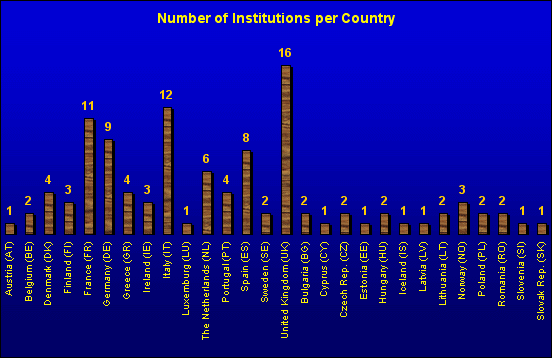E-mail: pascal.mimero@wanadoo.fr, smith@cpe.fr
Abstract : The European Chemistry Thematic Network (ECTN), established in 1996 with
funding from the European Commission Socrates programme, has developed
into a network of over 100 Institutions of Higher Education in
30 European countries. The ECTN is in the process of forming a
non-profit making Association. All European HE Institutions are
eligible to join this Association, and Institutions from non-European
countries are invited to join as associate members.
The ECTN is an established forum for the exchange of ideas linked
to the teaching and assessment of chemistry. The network helps
to identify differences and similarities, and the strengths and
limitations of educational systems, curricula, and teaching and
assessment methods. In this way, the ECTN possesses a unique potential
to bring together, to exchange, to develop and to disseminate
expertise and good practices.
A principal aim of the ECTN is the identification of that part
of all first degree programmes that is common throughout Europe
(core chemistry), in terms of content, learning outcomes, teaching
methods and assessment. A number of ECTN working groups have considered
this core chemistry, both theoretical and practical, as well as
transferable skills needed by chemists (languages, communication
skills, team working, …).
The ECTN is also concerned about the image of chemistry and is
addressing this problem. A group has been established to identify,
evaluate and translate key printed resource materials, and has
established a web site to promote the image of chemistry.
We also have working groups considering the use of multimedia
in chemistry education, green and sustainable chemistry, and food
chemistry.
Keywords : Evaluation, Chemistry, Test, Europe, Green Chemistry, Computer-based test
The European Chemistry Thematic Network (ECTN) is represented throughout Europe.
The ECTN was established in 1996 ; it is represented by 30 countries and 110 institutional members and all together over 180 collaborators from 34 countries, including our Associate partners (USA, Canada, Russia, Israel). ECTN is funded from the EU Socrates programme and is one of about 40 Thematic Networks covering a wide range of disciplines, such as Mathematics, Biology, Marketing, Environment, etc. To access most ot the Thematic Networks supported by the EU, visit the portal website at http://www.eask.be. A full list of thematic networks is provided at the following site : http://cranmmx.esstin.u-nancy.fr/tnpn/tnpnt .
As stated by the European Commission, the general roles of Thematic Networks are to:
Thus the ECTN is essentially a forum for the exchange of ideas linked to all aspects of the teaching and assessment of chemistry, but is also able to create concrete outcomes such as computer-based tests, data-bases, etc. The network helps to identify differences and similarities, and the strengths and limitations of educational systems, curricula, teaching and assessment methods, in the different European countries. We can build on the similarities and benefit from the differences in cultures, languages, and educational systems. In this way, the ECTN possesses a unique potential to bring together, to exchange, to disseminate expertise and good practices.

Some of the topics developped by the ECTN over the last few years are the following :
The future activities of the ECTN are oriented towards :
Also, the ECTN is involved in a project that is looking at the changes in Educational Structures that will be necessary as a result of the Bologna Declaration (see http://www.relint.deusto.es/TuningProject).
You may find more information about many of these activities on the ECTN website : http://www.ectn.net or the European Chemistry test website : http://www.EChemTest.net.
Two of the above topics are discussed briefly below :
Teaching resources and examples of good practice in Europe are being identified. National Reports on the current status of teaching practice were not possible due to the large differences in practice even within a single department let alone within institutions and between institutions within the same country. However, following initial investigations a number of recommendations have been made:
Who and Why ?
What for ?
The Available Topics of the European Chemistry Test are :
and under development
The European Chemistry Test is produced by members of the ECTN, organized in 4 Working groups for the creation and the development of tests. A total of 2000 questions are available in a wide Question Bank translated in 4 languages. A Demonstrator version of the tests is also available in 19 languages.
The Tests are produced using QuestionMark ô a commercially available software allowing a wide range of question types :
For more information about the tests, visit our website at http://www.echemtest.net
|
|
|
The authors acknowledge the essential contribution of many ECTN members to the work of the network. They are too numerous to include in this paper, but their names are available on the various websites given in this text.